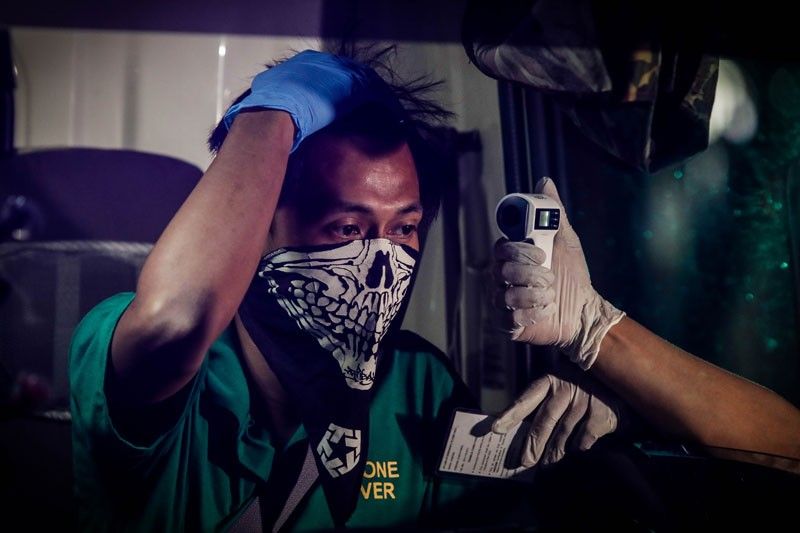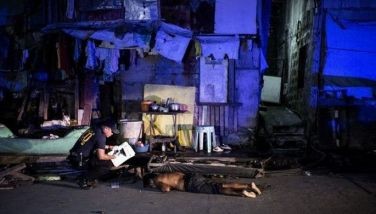COVID-19 patients must bare personal info – IATF

MANILA, Philippines — The government is now requiring the disclosure of personal information of patients afflicted with the coronavirus disease 2019 or COVID-19 to boost contact-tracing efforts.
Contact-tracing involves identifying people who have interacted with confirmed COVID-19 patients. It is one of the measures intended to contain the disease, which has infected more than 1.7 million people worldwide, with about 4,000 of them in the Philippines.
“The (Inter-Agency Task Force on Emerging Infectious Diseases) adopts the policy of mandatory public disclosure of personal information relating to positive COVID-19 cases to enhance the contact-tracing efforts of the government,” Cabinet Secretary and IATF spokesman Karlo Nograles said in a press briefing yesterday.
The Office of Civil Defense (OCD), according to Nograles, would lead the contact-tracing efforts.
“The (Department of Health) and OCD are directed to enter into a data-sharing agreement in accordance with Republic Act 10173 or the Data Privacy Act,” he said.
The mandatory public disclosure of personal information of patients with COVID-19 is contained in IATF Resolution 22 approved last Wednesday. The policy reversed an earlier IATF policy that required hospitals and other health facilities to secure the consent of COVID-19 patients before revealing their identities.
The IATF has also allowed personnel of the Philippine Statistics Authority to gather data and conduct surveys related to COVID-19 despite the implementation of the Luzon-wide enhanced community quarantine. The activities exempted from the quarantine restriction include those related to the registration and implementation of the national identification (ID) system.
“Such exemption shall be without prejudice to the requirement of strict social distancing measures in all its operations and data-gathering activities,” Nograles said.
Last week, Senate President Vicente Sotto III called for the implementation of the national ID system, saying it would help streamline the list of beneficiaries of the government aid program that seeks to assist sectors sidelined by the lockdown.
Higher recovery rate
The Philippines may see a higher recovery rate for COVID-19 cases in the next days as the government ramps up testing of people, Dr. Anthony Leachon, special adviser to the IATF, said yesterday.
Leachon said the country has so far low recoveries and most of the positives are very serious or critically ill, especially during the first week of the lockdown, when the government had limited testing kits and had to prioritize whom to test.
He added that some patients would use three to 10 test kits.
“You need to remember also that the course of illness runs two to three weeks. Some of the patients may still be positive even after three weeks, and they will need to have a negative swab before they are considered recovered,” Leachon said in a message to The STAR.
Sometimes, some patients are re-swabbed several times before they become negative even if they have become asymptomatic already or past the illness window, he added.
The positives of the recovered patient, however, may merely be genetic material left from the virus, he said.
“After March 28, we were seeing numbers (of new cases) in triple digits. So you will need to wait for next week before more recoveries are seen,” Leachon said.
The country’s case recovery rate was at 3.04 percent compared with the 22.30-percent global average.
The DOH yesterday reported a high number of COVID-19 fatalities as well as a high number of patients who recovered from the disease.
The DOH said 50 new deaths brought to 297 the total number of COVID-19 fatalities as of yesterday afternoon, while 40 new recoveries brought the total to 197.
The agency clarified, however, that the latest fatality figure included the previous unreported deaths while the 40 new recoveries now included those on home quarantine as well as those discharged from hospitals.
Health Undersecretary Maria Rosario Vergeire said 220 new cases also pushed the total number of confirmed COVID cases in the country to 4,648.
With the new classification of COVID-19 patients, Vergeire expressed confidence that more patients would be provided appropriate treatment at the earliest time possible.
“Under the new classification, probable cases can now be given attention and doctors can provide them the medicine based on medical assessment while waiting for the results of the laboratory test,” she said.
She explained that doctors can also be protected with the formalization of the new classification based on the standards of the World Health Organization.
The new classification, according to Vergeire, also allows cremation and burial of those who died without waiting for the laboratory results confirming they were positive for COVID-19.
The health undersecretary further gave assurance that the DOH would continue to monitor and care for those who have been previously considered persons under monitoring (PUM), although now excluded from the DOH list.
She added that the DOH would also be hiring additional health personnel who would be deployed to COVID-19 referral hospitals and private medical facilities admitting COVID-19 patients. – With Paolo Romero, Mayen Jaymalin
- Latest
- Trending



























